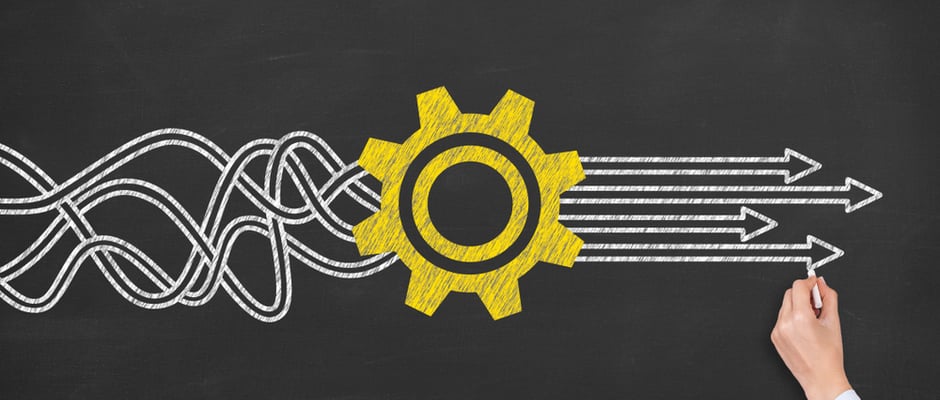There are a number of good reasons to take careful notes while you are in sales calls. First, it’s helpful to your cause for your dream client to watch you writing down what they say, since it shows that you care enough to document what’s important to them. More practically, your brain isn’t the most trustworthy place to keep all the things you want to recall later, which is one reason writing (and typing) exists.
If you can’t trust your brain to recall what you had for lunch last Wednesday, don’t trust it with valuable information about your client’s needs and concerns. Taking those notes, however, is only the first step.
Why You Must Take Notes
As stated above, part of creating and winning new deals is demonstrating your engagement to the decision-makers and decision-shapers at your client’s company. It’s poor form to show up without something on which to take notes, since your contacts will assume that you likewise lack real interest in the project, devastating your ability to win their business. It’s always impressive to watch a waiter take eight meal orders and memorize them all— until you end up with the wrong dish for dinner.
Throughout the sales conversation, your client is going to reveal information that can and will help you win their business. They’ll share some of the challenges they have experienced, what they have tried in the past, what they believe the right solution might be, and if you ask good questions, who else in the company will need to be part of the process. They will also disclose their preferences and often their motivations, which can give you a significant edge during the sale.
In your notes, you want to capture anything that might be useful to you later, along with everything that your contact says is important to them as they decide what solution to buy and who to work with in the future.
What to Do with Those Notes
No doubt, many of the notes you have taken in meetings are still on a yellow legal pad in the trunk of your car, or on a scrap of paper in a drawer somewhere, or in a stack of folders somewhere near your desk. If you used an electronic device to take notes, your scribblings are now in the wasteland of digital clutter that is your laptop. So don’t let your notes languish: put them to use immediately after your meeting by processing them into something useful.
Say you have a note that reads, “Partner failed them 2x month. Missed deadline for major acct.” That’s a useful note, but only after you process it to say, “Their current partner failed them twice in the last month. They missed two deadlines, and it damaged their relationship with their larger customer. This is compelling them to change.” Another note might read, “New initiative. New client. SLA penalties.”
Again, making it meaningful will be much easier right now than next month. You might end up with something like this: “The company won a new customer with a new initiative. They have never done what they are being asked to do. Their customer has a service-level agreement with harsh penalties, and they want to ensure that they can meet their customer’s demands without paying penalties that would cause them to lose money. This is another reason they are looking for a new partner, and it’s the real problem they are trying to solve.”
You won’t have time to write down the processed version of your notes during your meetings, so prioritize it when you get back to your office. As you process your notes, you are certain to have questions about something your client said. Those questions are incredibly valuable, as they will help improve your next meeting with your client.
The very best place to store your meeting notes is in your CRM, the software designed to organize all the communications you have with your clients—but especially the notes about the opportunities you are pursuing with them. Even if you back up your notes somewhere else, paste them into your CRM so you don’t lose track of them.

How to Use Your Notes to Win Deals
During one very large and incredibly competitive deal, I took notes on every question and concern from each of the fourteen people sitting around the large boardroom table. I started by drawing a map of the table with each person’s name, then wrote down their comments under their name. When I returned for my second meeting, I presented a slide deck with each person’s questions or concerns, along with how my company would address them.
They were impressed that someone took the time to answer every question and resolve every concern, something that contributed to my winning the deal after years of pursuit. Remember, you get paid for winning, not for playing.
Notes can also help you secure the next commitment. In the thank-you letter you send your dream client after a call, you can summarize what your contact said was important to them, or address a question they asked that you weren’t able to answer during the call. Both items support the fact that you are excited by the opportunity to meet with them in the future. They also transform your letter from an obligatory postcard to something that creates more value, proves that you understand their current challenges and opportunities, and clearly acknowledges their preferences.
When we sell, sometimes we forget that success is found in helping our clients make good decisions about their business and improve their results. Your communication with your client needs to hammer that fact home, a task that can be improved by your referring to your notes.
Take good and meaningful notes, process them to make them actionable for you, and use them to create greater value for your prospective clients. Dumping your notes in a pile only ensures they will be useless in the future.

Get the Free eBook!
Your guide to become a sales hustler
Hustlers pursue opportunities. They give themselves lots of chances to be successful. Discover what it takes to become the best hustler around.
Download Now








.jpg?width=768&height=994&name=salescall-planner-ebook-v3-1-cover%20(1).jpg)


